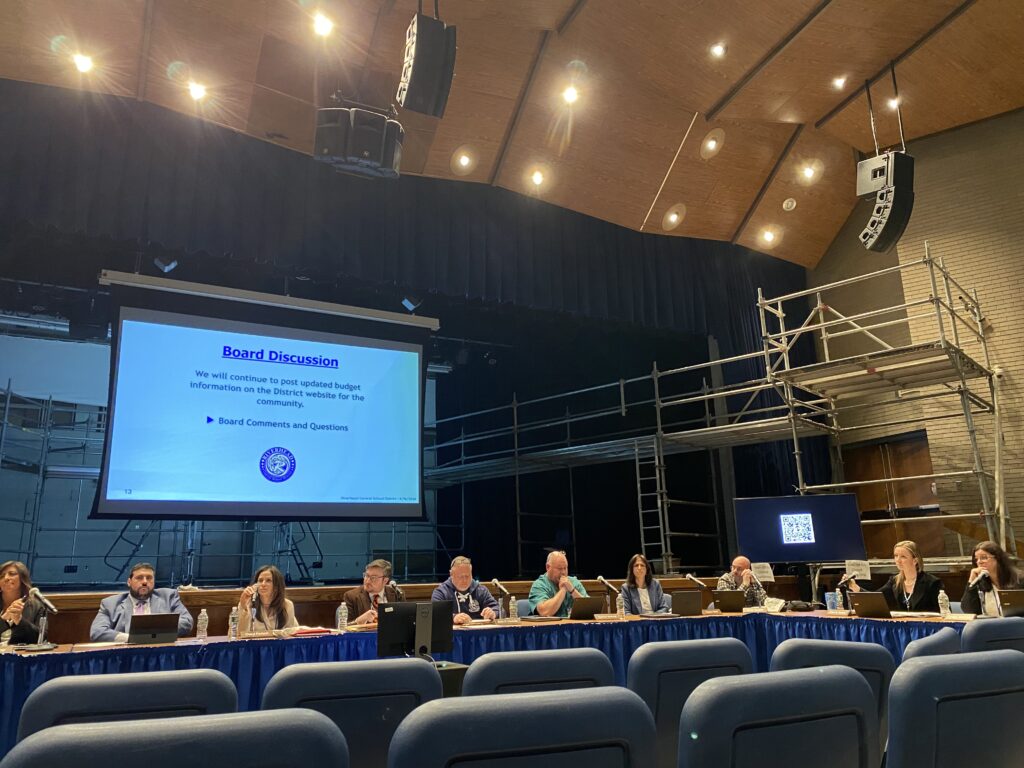Farm Laborers Wage Board recommends implementing 40 hour overtime threshold over next decade

The farm wages overtime threshold could be lowered from 60 to 40 hours a week over the next 10 years, if approved by the state.
In a Jan. 28 vote, the Farm Laborers Wage Board voted 2-1 to recommend reducing the threshold, with a phase-in schedule lowering the threshold by four hours every two years starting in 2024.
The board will meet again to finalize and approve a written report, which will be published for a 15-day public comment period. Labor Commissioner Roberta Reardon then has 45 days to consider the resolutions — which she may accept, reject or modify — before making her own recommendation, to be ultimately approved by Gov. Kathy Hochul.
The recommendation has been met with disappointment by farmers across the state, including on Long Island. Long Island Wine Country president Kareem Massoud told Times Review the decision is “a lose-lose outcome.”
“The agricultural workers who are supposed to benefit from this decision are going to see their work weeks shortened over the next 10 years,” he said. “Farmers are small business operators and as such they will do whatever they need to do to keep costs down.”
Payroll is the biggest expense on most farms, according to Mr. Massoud. Workers who had been putting in as many as 80 hours a week “not because they were forced to, but because they wanted to generate greater income for themselves and their families are going to come up short,” he said.
“This is not a good outcome. Nor is it a good outcome for farmers who will either do their best to hire additional workers or replace workers with machines and use overtime pay as sparingly as possible,” he said. “The fundamental reason agriculture was granted an exemption from overtime pay in the first place has not changed: We are partners with Mother Nature. In fact, with climate change our livelihoods are impacted even more than before.”
New York Farm Bureau president David Fisher, who cast the lone vote against the recommendation, said in a press release that he has “serious concerns” about how the recommendation will impact New York agriculture and questioned why more of the submitted video testimony was not played for the wage board.
“I would have hoped my fellow board members would have considered more of the impacts that this will have on agriculture,” he said. The press release says about 70% of testimony was in favor of keeping the overtime threshold at 60 hours per week.
The Farm Bureau has asked Gov. Hochul to “find an alternative to the wage board’s recommendation.” The group said it “appreciates” that the governor is searching “for a creative solution” by proposing overtime tax credits, but farmers are concerned about cash flow to cover the overtime costs.
“New York Farm Bureau is asking for more discussion around this with the governor and legislature,” the press release says. Gov. Hochul announced intentions for overtime tax credits during her state of state address in January. A press release later elaborated that the governor plans to “increase an existing workforce tax credit and create a new one, while also expanding an investment tax credit for equipment to complement the workforce and address shortages.”
The planned measures include creating a new permanent, refundable overtime tax credit to offset rising labor costs; doubling the yearly fixed dollar amount per eligible employee under farm workforce retention tax credit and extending the program to 2025; and increasing the existing investment tax credit to help farmers purchase new equipment.
Labor groups support the wage board’s recommendation. The New York Civil Liberties Union has urged the governor and labor commissioner to accept the wage board’s recommendation and “bring an end to the Jim Crow-era injustice and discrimination against farmworkers that the Farm Laborers Fair Labor Practices Act was intended to reverse.”
The Farm Laborers Fair Labor Practices Act was passed in 2019, granting farmworkers the right to collectively bargain, at least a full day of rest each week, eight-hour workdays and an overtime rate 1.5 times normal wage rate, among other things. The law also set the overtime threshold at 60 hours and created a farm laborer wage board to consider whether it could be lowered.
“The workers on whom we depend for the food on our tables have waited over 80 years for dignity and to be afforded the same basic workplace protections as all New Yorkers,” NYCLU executive director Donna Lieberman said in a press statement. “New York’s agriculture industry must no longer depend on the continued exploitation of farmworkers. The NYCLU will continue to stand with farmworkers in the fight for equal workplace protections, fair compensation and basic rights across New York State.”
Local 338, which represents the Pindar Vineyards union in Peconic, did not respond to a request for comment but has previously expressed support for reducing the overtime threshold.
“Unions like ours fought for a 40-hour work week to ensure workers would have time for their responsibilities at home,” union president John Durso said in a statement emailed to Times Review in December. “When work takes them away from that they must be compensated with overtime pay rates that allow for their families to be supported without them there.”
He said overtime pay is often used for child and elder care costs when workers can’t be home and pointed out that workers in other New York industries are granted the right to a 40-hour work week.
“Farm workers need it too. We will fight at the bargaining table to protect what we’ve long held for our new members, but farmworkers across the state need to be treated with that same dignity and respect and get the same overtime pay others do,” he said.








